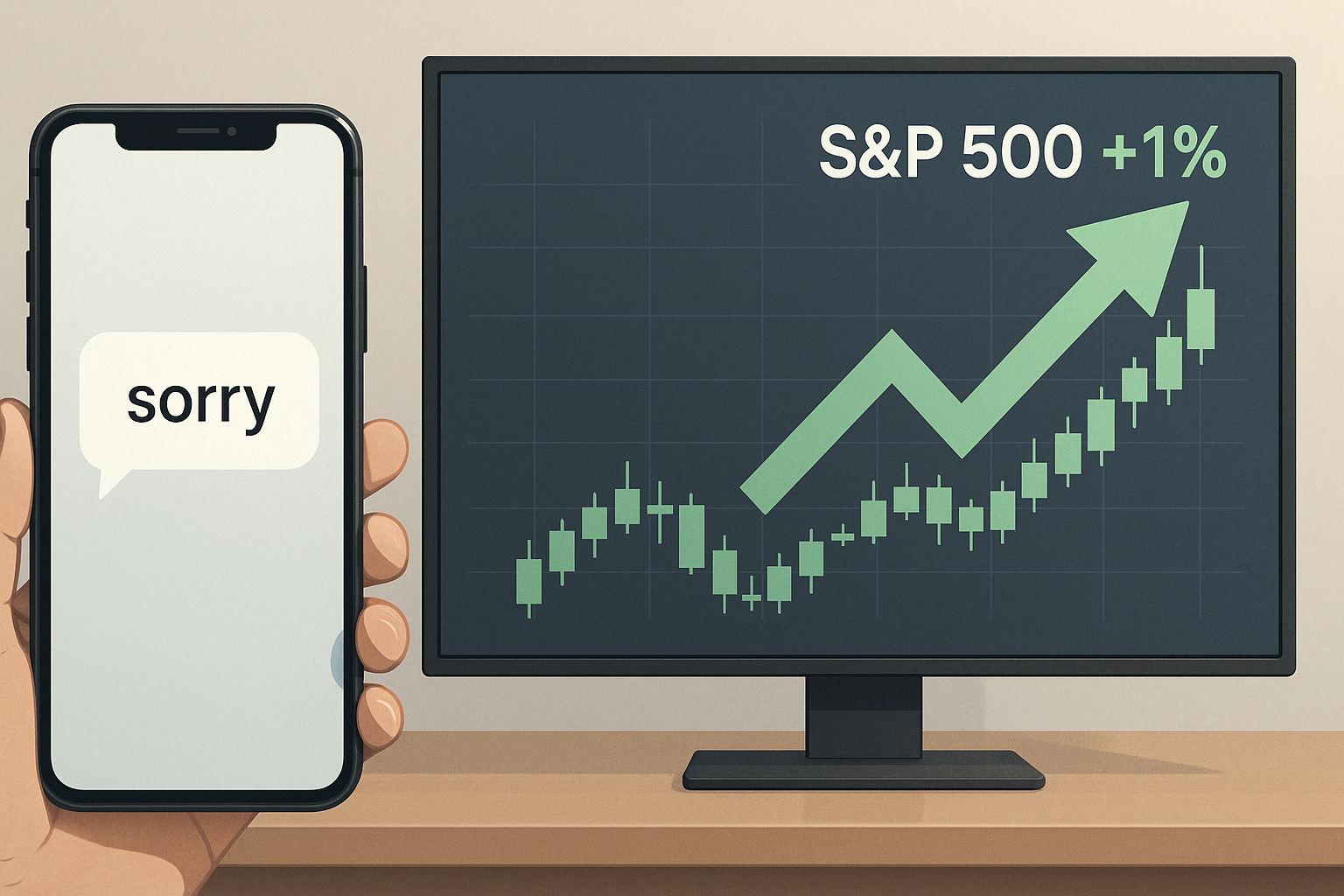The stock market surged yesterday on the back of—I kid you not—a single-word presidential tweet: "sorry."
One word. One percent gain in the S&P 500. What in the world have we become?
I've been tracking market movements since the early 2000s, and there's always been noise in the system. Fed announcements, quarterly earnings surprises, geopolitical flare-ups—these things move markets for reasons that at least pretend to be fundamental. But now? Now we're watching retirement accounts fluctuate based on the digital mood swings of former presidents.
Let's call it what it is: absurd.
The market manipulation game isn't new, of course. Back in the Roaring Twenties, you had coordinated "pool operators" artificially pumping stocks before dumping them on unsuspecting regular folks. At least that required some effort and coordination. Today it's just... typing.
What fascinates me (and disturbs me, if I'm being honest) is how predictable the market response has become. Orange-tinted former president tweets something conciliatory? Markets up! Threatens new tariffs? Markets down! It's so mechanical that algorithms now scan Twitter—sorry, "X"—feeds and execute trades based on the sentiment analysis of political figures' posts.
I mean, think about that for a second. Your 401(k) performance is now tied to someone's social media habits.
There's something I've started calling the "Attention Premium" at work here. Markets are weirdly willing to pay extra for certainty, or even just the facade of it. When high-profile figures with market-moving potential send signals, traders jump—not necessarily because economic fundamentals have shifted, but because they're trying to predict how everyone else will react.
It's a game of anticipating the anticipators, which is about as far from efficient market theory as my teenager's bedroom is from cleanliness.
Is this what markets should be? Hell no.
In theory, markets should reflect the collective wisdom of millions making decisions based on actual economic factors. But markets have always been vulnerable to psychology and manipulation—it's just more blatant and maybe more severe now.
How long will this continue? (Deep sigh.) The structural enablers—algorithmic trading, social media, political tribalism, retail investor FOMO—aren't going anywhere. If anything, they're getting worse.
My advice to clients isn't particularly sexy: extend your time horizon. The daily noise eventually fades. If you're investing for retirement, focus on decades, not presidential tweet cycles. These social media-driven rallies and selloffs will eventually be footnotes, not defining chapters of your financial journey.
Look, this pattern does create opportunities for disciplined investors who can separate signal from noise. Dollar-cost averaging into broad indices during volatility has historically worked well for people who don't have the time (or stomach) to track presidential Twitter habits.
The market survived world wars, depressions, and—somehow—even disco. It'll survive presidential tweets too.
In the meantime, maybe we could all benefit from a bit of Stoicism... focus on what we can actually control: our asset allocation, our time horizon, and how we respond emotionally to these ridiculous market swings.
Because at the end of the day, the only thing more predictable than market manipulation is that somebody, somewhere, is making money off your reaction to it.
And it probably isn't you.
